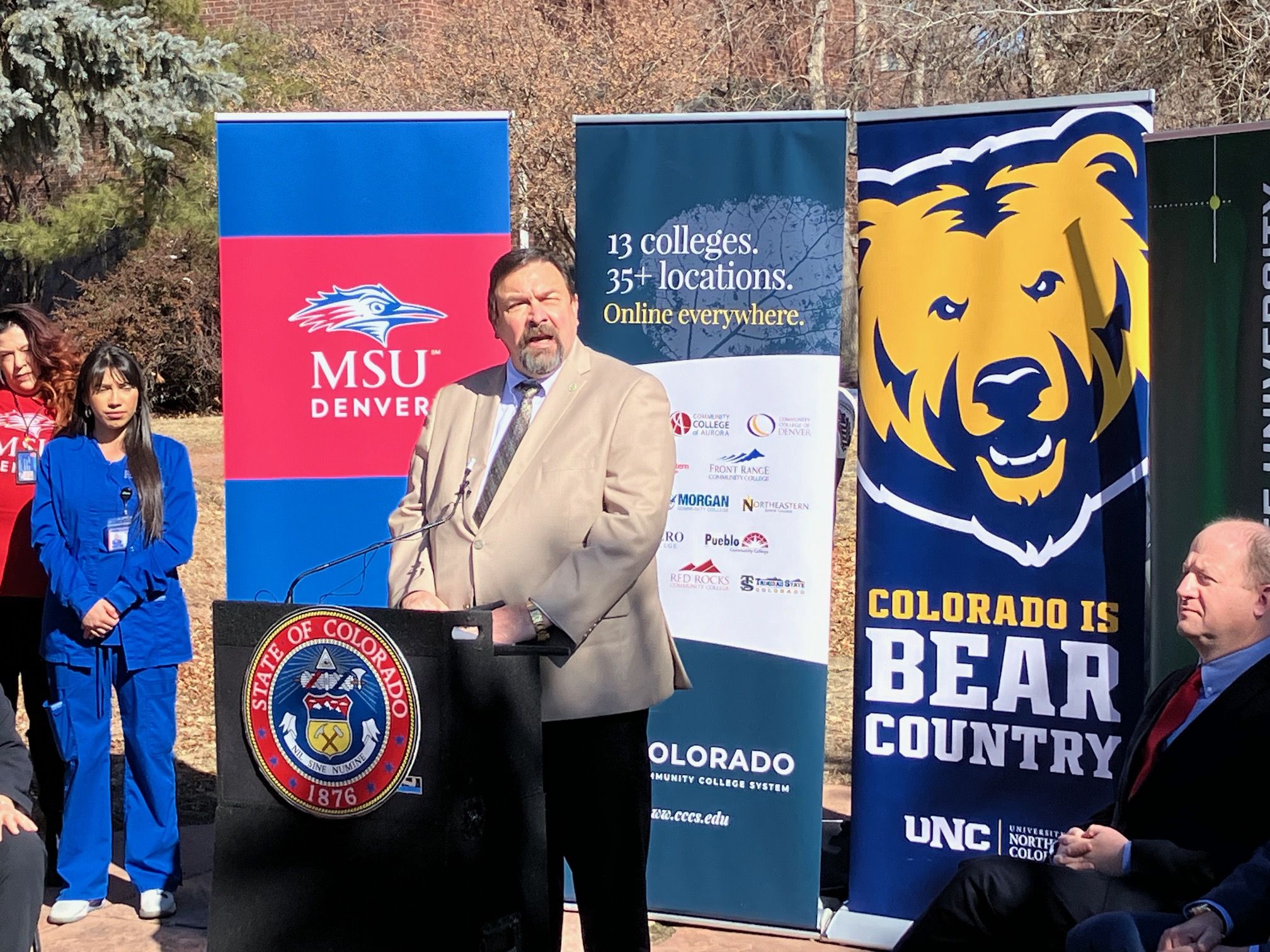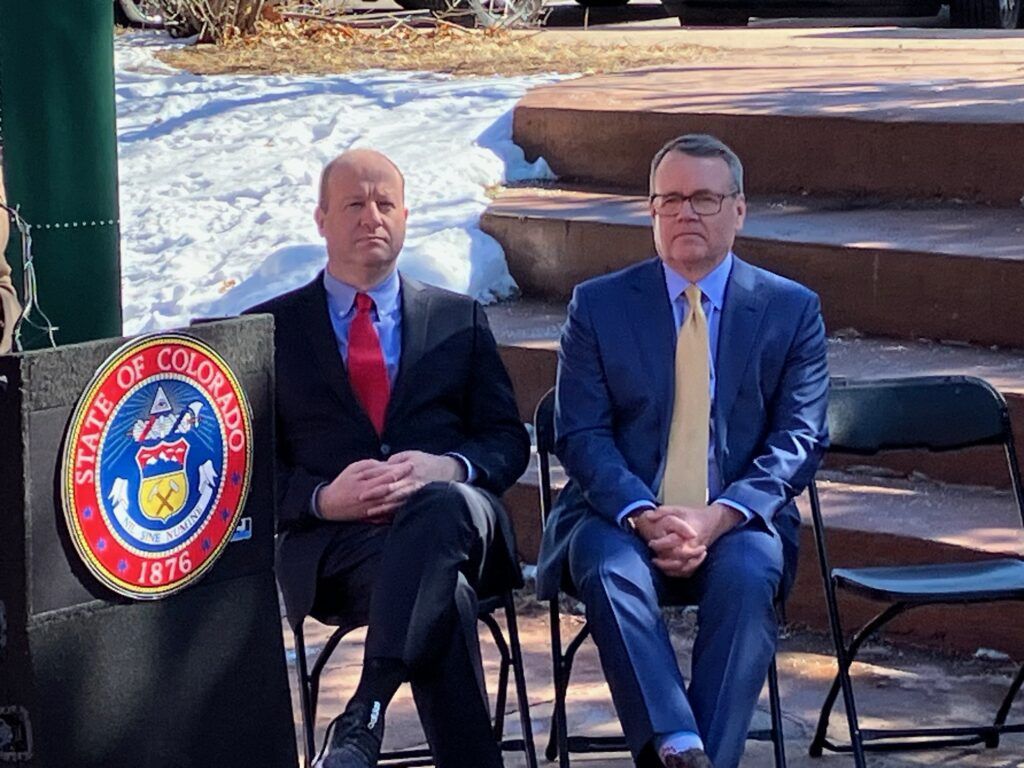Bill would provide funds for UNC med, CSU vet schools

DENVER — A soon-to-be introduced bipartisan bill will, if passed by Colorado lawmakers, provide funding for a number of higher education initiatives around the state, including at the Veterinary Health Education Complex at Colorado State University in Fort Collins and at the University of Northern Colorado’s proposed College of Osteopathic Medicine in Greeley.
SPONSORED CONTENT
Empowering communities
Rocky Mountain Health Plans (RMHP), part of the UnitedHealthcare family, has pledged its commitment to uplift these communities through substantial investments in organizations addressing the distinct needs of our communities.
“This funding plan will help ensure that we can create the (UNC) medical school, which will graduate 150 new doctors a year, which is so needed in our state for a number of reasons,” Gov. Jared Polis said during a Monday press conference at the Metropolitan State University campus in Denver that was attended by a host of state government and higher education officials. “We have an aging population in our state, and we also had a number of doctors and medical professionals retire early and burn out during the pandemic years.”
Details on the funding plan, which also includes money for the Health Institute Tower at MSU Denver and a Valley Campus building addition at Trinidad State College, such as dollar allocations for each institution, specific uses and funding sources, were fuzzy on Monday, but officials said details would be forthcoming when the Certificate of Participation Bill (HB24-0196) is introduced to Colorado lawmakers, perhaps as early as Monday afternoon.
However UNC officials, in a news release Monday, said that the $247 million bill will “provide $128 million for UNC to construct a building for the medical college, with the remaining funding going toward other health care workforce projects” at CSU, MSU and Trinidad.

“When this bill does pass, the Legislature will be making a huge investment back into our institutions of higher education in a meaningful way for all of Colorado,” Colorado Sen. Barbara Kirkmeyer (Weld, Larimer) said.
UNC’s College of Osteopathic Medicine
University of Northern Colorado president Andy Feinstein said UNC’s medical school, which has been planned for several years but has so far lacked the necessary funding to start training new doctors, is “expected to boost Colorado’s economy by $1.4 billion over the next 20 years,” with nearly one-third of that total directly benefiting Weld County.”
UNC’s decision to focus on creating a college that grants Doctor of Osteopathic Medicine (DO) degrees, as opposed to one that grants Doctor of Medicine (MD) degrees as does the University of Colorado School of Medicine, is intentional, university officials told BizWest last year. While both degree programs lead to the practice of medicine as a physician, osteopathic medicine is one of the fastest-growing health-care professions in the country and the field has a long tradition of providing care in rural and underserved areas, key places where Colorado needs doctors now. The initiative also aligns with and builds on the strength and depth the university already has in its sciences and health-sciences programs, including its nationally ranked nursing and public health programs, as well as other programs in behavioral sciences, biology, chemistry, audiology and speech-language pathology.
“This will address the current and future shortages of physicians in the state,” not only along the Front Range but in more rural parts of Colorado such as eastern Weld County, Colorado Rep. Mary Young (D-Weld) said Monday.
UNC’s research into creation of a College of Osteopathic Medicine began in earnest in spring 2021 following conversations with leaders of local hospital systems and community leaders about Colorado’s growing need for more physicians and the university’s role in addressing that challenge.
Getting the effort off the ground took a “monumental effort,” Colorado Sen. Barbara Kirkmeyer (R-Weld, Larimer) said. “… We’ve been working on this project for the last couple of years, so it’s great that we’re coming to fruition on this.”
CSU’s Veterinary Health Education Complex
If HB24-0196 passes, a yet-to-specified portion of the funding will be put to use at Colorado State University’s Veterinary Health Education Complex, which will improve the facilities at CSU’s prestigious veterinary school and reduce class sizes, CSU Chancellor Tony Frank said. The $230 million complex expansion and upgrade project will solidify CSU as home to “the world’s finest college of veterinary medicine.”
Slated for completion in spring 2026, a veterinary teaching hospital is the centerpiece of multiple planned improvements, BizWest reported last year. The hospital will feature an expanded primary-care clinic that will aid CSU in training job-ready veterinarians and provide better community access to its veterinary care. The project also includes construction of a new Livestock Veterinary Hospital, planned to open in early 2025. This $13 million hospital will provide medical, surgical and ambulatory facilities and adjoins the Johnson Family Equine Hospital.
The existing James L. Voss Veterinary Teaching Hospital was constructed in 1978. A shortage of highly skilled veterinarians has been spotlighted by increased demand for both large- and small-animal services, in part because of a spike in pet ownership during the COVID-19 pandemic.
The reimagined Veterinary Health and Education Complex, known as VHEC, will nearly double the size of the teaching hospital and allow CSU to admit 30 new students to its doctor of veterinary medicine program each year, growing the class size to about 170. The new facilities also will increase the amount of practical, hands-on training veterinary medicine students receive.


